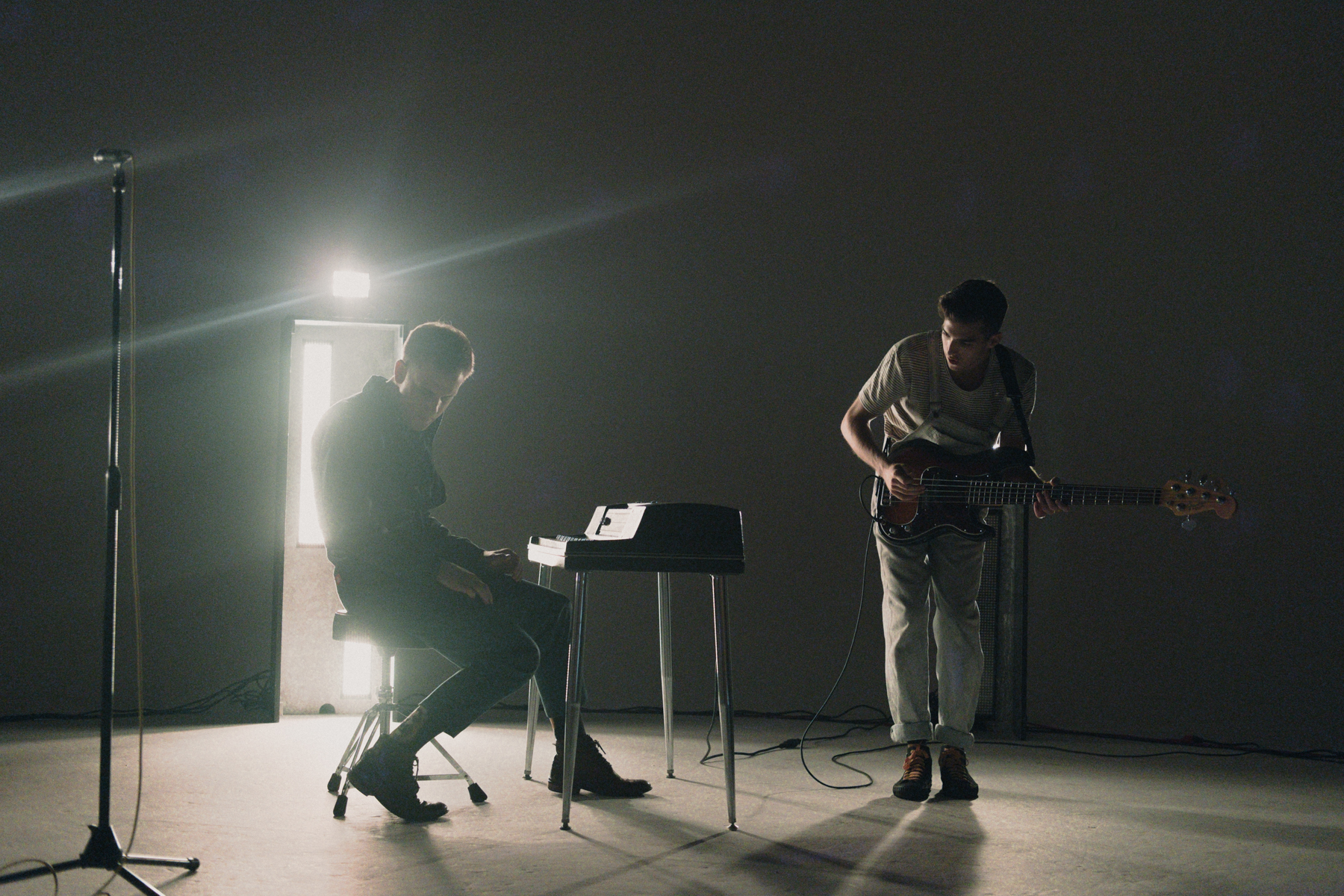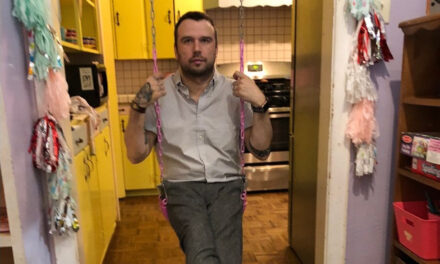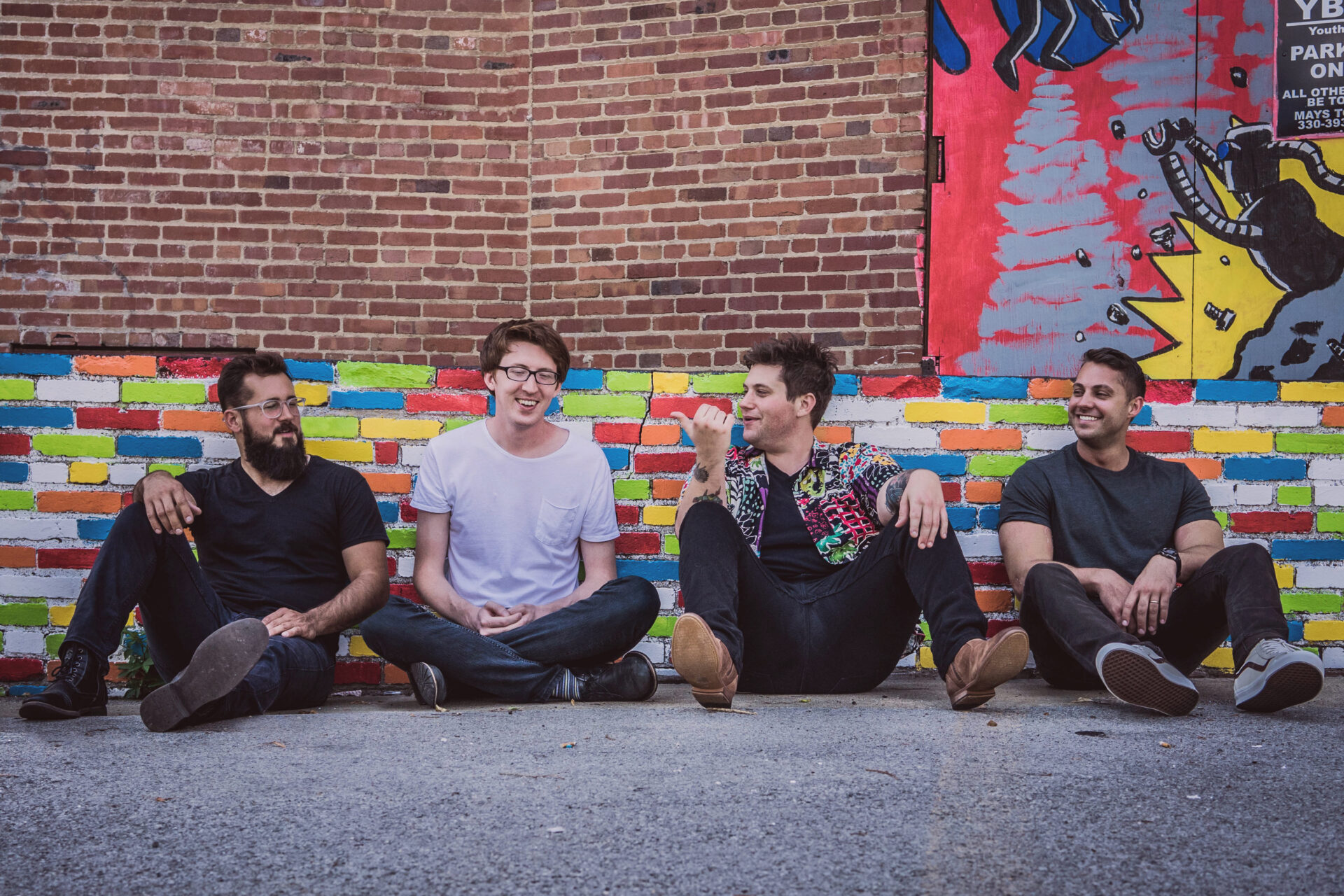No matter whether you write music or not, you can understand how daunting a 50 song challenge might be. 50 songs is a lot of songs! Even harder would be the process of culling those down to just 3. After putting all your love and care into so much music, picking just 6 percent of your output sounds daunting. That’s exactly what Josh Taylor of half•alive did, though. The result is the band’s (made up of Taylor and drummer Brett Kramer) first EP, 3, consisting of those 3 chosen songs.
Taylor’s journey here has taken many twists and turns. It includes years studying film in college, the aforementioned challenge, and time spent out in the Mojave dessert recording the EP. We talked to Taylor on the phone the morning after half•alive’s first live show. We talked about the challenge, filming a music video, and how psychology and film have influenced his songwriting process
Substream: How are you?
Josh Taylor: How am I…? Good, actually just woke up not that long ago.
Substream: You’re California, right?
JT: Yeah, west coast time. Still kinda a ridiculous time to wake up, so that’s not really an excuse [laughs].
Substream: It’s basically the same time that I woke up today, so you’re good.
JT: Nice.
Substream: I guess that’s a perk of working in the industry we do.
JT: Yeah! We actually had a show last night, so I didn’t get back until one, had to wind down a bit.
Substream: How did it go?
JT: Excellent, it was actually our first show. It went really well. We didn’t really invite anyone because it was our first show and we didn’t want to… we needed to practice a bit before [laughs]. But some close friends came out, and it was really good to have their support and be able to know most of the people in the audience, plus the other people that we didn’t know that became fans of ours.
Substream: It’s a good mix of having that security blanket with some real life people.
JT: Yeah, exactly. We invited our producer and manager to give us notes on what to do better for next time. That was helpful.
Substream: Cool. I know you started this band off this 50 song challenge that you did. Can you talk a about what the challenge was?
JT: It was a decision I made after.. I was in school, I was going to school for film, and I had just gotten into this program I really wanted to get into actually, into a directors tract after going for two years. Then as soon as I got in I decided that I needed to take a break from school to focus on music full time. So I said “oh, I’ll just take a semester off.” I talked to a mentor of mine who owns a studio in Long Beach, and he was like “what are you going to do with your time off? How are you actually going to improve your songwriting? How many songs are you going to write?” .uhhh I don’t know, I didn’t put a number on it. So he went “well how about I put a number on it for you?” [laughs] so I said okay. He said “okay you have seven months left before you get to the end of the year, how about you do 50 songs between now and then.” I thought “woah, that’s a lot,” but he went “yeah, but I think it’s worth it if you really want to go for it. It’s what’s going to get you better.” Okay, let’s do this. So I started renting some studio space from him as a work environment and also just to force myself, like I’m paying for the time, I need to use it, I need to write one and a half songs a week.
Substream: Right, give you that motivation like “if I’m not writing, that’s money down the drain.”
JT: Exactly. And I knew that the first maybe five or ten songs were going to be… well, I was going to enjoy the last ten more than the first ten, that was the goal. So through collaborating with a lot of different friends and songwriters that I know, one of them being Brett, the other guy in half alive. He helped me out a lot, especially with musical knowledge, since he graduated with a degree in drumming, pretty much. So he knows all the musical theory much more than I do. Through that we got 50 songs at the end of it, so we said “hey we have 50 songs to choose from, let’s try to make something out of this.” So we spent the next year paring down the list and rewriting parts and organizing the songs until we got three that we were really proud of. I knew a producer named James Krausse from a previous project that I had worked on and he was up for recording us, so we went out into the desert to record. We tracked a lot of it in a studio in LA and then all the live sounds we got in the Mohave desert in a studio that he had helped build. He converted it from a helicopter hanger into a recording studio.
Substream: Nice!
JT: Yeah so the space was huge, got excellent drum tones. And it was really good to just get out of the city and have three or four days dedicated to the songs. It was really nice.
Substream: You said that you went to school for filmmaking. Is there anything you learned with filmmaking and that artistry that goes into music?
JT: Oh yeah. Especially in the first two years of film, it’s all theory more than practice, so tons of stuff I learned from my favorite class I had ever taken in my educational career, being “The Theory of Fiction in Film.” It dives into what makes narrative and story so powerful and why we as humans attach ourselves to it and how it shapes everything that we know. I got a lot of… I would always walk away from that class being like “Oh, I could write a song about that. Next.” [laughs] That’s even where I came up with the band name; from that class, studying psychology and Sigmund Freud and Carl Jung and their theories of how the human psyche works. They both have this theory that… where the angel and demon on the shoulder comes from is that you have two sides of yourself. One’s trying to bring you into life and the other’s trying to bring you into death. The things that you love about yourself versus the things you hate about yourself. In that battle you end up in a state of “half alive,” which is where we all sit day to day.
Substream: So when you’re writing then, do you go into it with the idea for a narrative?
JT: When I’m writing the songs?
Substream: Yeah.
JT: Some of them are more narrative-based. It depends on how you define narrative. Some of the 50 songs were more story based, like I try to put myself inside of a character. One was even written about a World War I solider, with the trenches, and what that would be like to be living in the trenches for 9 months. The ones that we ended up choosing for the half alive project were more along the lines of the struggle between the spirit and the flesh and that same struggle that the psychologists talk about of life and death. So those are the songs that we ended up choosing that more aligned with what we wanted to talk about at first.
Substream: On the EP, you’re very much putting your emotions out there. Was that nerve-wracking leading up to the release?
JT: Definitely. That’s actually what the first song is all about, it’s very meta in that sense. The first song we released after two years of working on this project was “The Fall,” which is talking about how hard it is to release something I have spent so much time on and know so well and then releasing it to people I don’t know and can judge it within a few seconds of listening to it.
Substream: You have all this background and all this knowledge about it, and you’re sending it out to people who don’t.
JT: Right, it feels like sending my kid off to school or something and saying “well, lets see what happens.” Time for the song to speak for itself, see if the message really does come across.
Substream: Now that is has been out, what are your thoughts on the reactions to it and your feelings on having it out there.
JT: It’s been a wild journey of putting it out and kinda relying on the solid group of fans that I had built up from the last project I was in, seeing that being carried. We released it with the expectation of it being three songs on the internet to slowly gain some traction while we have time to work on the live show and write more songs. We did not expect people to latch onto it so quickly, for it to grow way more quickly than we thought was going to happen.
Substream: What’s that sensation like? It must be surreal.
JT: Yeah, it’s very strange to put in all the work beforehand and then release it and really… We didn’t much in terms of marketing other than hunting down lots of music blogs and getting rejected by most of them [laughs]. It’s a very surreal feeling to have it grow but not having it be directly influenced by my hand. It’s all the fans who have grown it themselves.
Substream: Part of that must be a relief to have out of your control, but part of it must be scary to not have it in your hands anymore.
JT: Oh yeah, part of it feels very out of control and scary.
Substream: We talked about “The Fall” and that’s the music video. With film I imagine you had a lot to do with the behind the scenes part of that.
JT: Yes, with all the film stuff that I’ve done over the years, and I’ve done a lot of hands-on filming and editing in the wedding industry [laughs]. That definitely helps as well as doing a lot of music videos for my last band. So I was very hands-on in the making of that music video, which was terrifying in so many ways because that was the biggest project I had ever embarked on. We rented so many things that I had no idea how to use and then just kinda showed up and tried to get everything working.
Substream: In the video you have this concept of all these different scenes, and it just turns out they’re sets on an empty lot. Where did that concept come from?
JT: It was just a concept that I came up with. I had this story in my head, but I had no idea how to do it. I wanted it to be like surreal in the fact of there’s one primary scene, which is that bedroom which the scene keeps coming back to. But to have the viewer constantly questioning whether I’m actually in the bedroom or whether it’s a dream. And then going into the hospital like “oh he’s probably just in surgery and he’s hallucinating,” but then I get up off the table and it’s another set so it’s like “hmm, maybe not.” A lot of it came from my film classes, studying Joseph Campbell’s story, his story arc of the Hero’s Journey, so I tried to put in as many elements of that as I can. Some of them are very real, most of them are more metaphorical, like the battle with the dragon would be the battle in the big white room with my companions whom I’d met to help me complete the journey. I ended up making a whole other behind the scenes video for “The Fall” trying to explain my thought behind it and all those elements I tried to put in.
Substream: Something I noticed before talking to you was you posted something at the end of July, a journal entry about taking your time with the art and how taking care of yourself goes into that. Talk about the role of self care that goes into making your music.
JT: That’s become something, I’m increasingly aware of that. I’ve had a lot of friends and even bands that I look up to who have worked so hard that it really destroys the band, either internally with each other or externally trying to make a song that someone will buy instead of making a song that they enjoy to play. I’ve seen that really closely and I found that those are the most difficult things to do it seems for any band with success, it relies on the band staying together, them being friends at the end of the day. And if you work so hard you’re trampling all over each other’s feelings and pushing so hard no one likes each other, then the band isn’t going to have any success, and the art is going to suffer in the end as well because you’re not working on something that’s passionately coming from your heart and soul. You’re working on something because you have buzz around the band or something and you’re tying to feed the beast rather than change it from what you feel is right from inside of you. So I recognize that and want to make sure our souls are intact at the end of the day, the end of a show, that we’re still loving each other and loving our team and loving the people we get to work with, and loving the fans and we’re loving the music. And then making sure why we are doing this is still the same reason. I think that will create a kind of sustainability that we can keep making music.
Substream: Are there specifics you can share in that mentality, or is it more taking everything at a slower pace to not overwork yourselves?
JT: That’s a lot of it. Even with this project we felt this pressure of “oh shoot, this is not what we expected.” Now there’s a bunch of people wanting more music and we don’t have anything ready for them. But do we really try to rush something and release something that’s not as polished as it could be? Or do we take our time with it and probably risk losing some fans because they’re desiring more music? Just taking our time and making sure our product is really ready before we release it.












